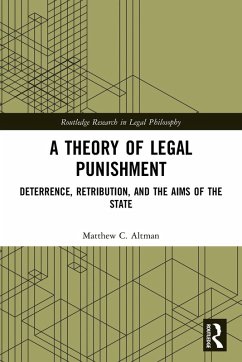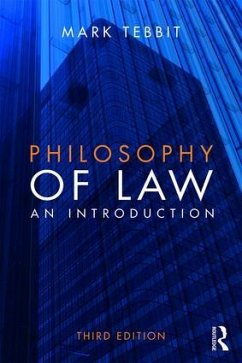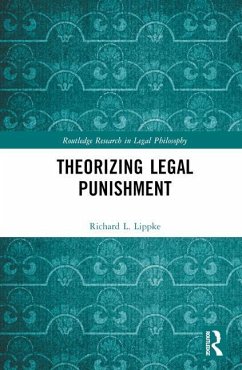
Moral Pluralism and the Complexity of Punishment
The Penal Philosophy of H.L.A. Hart
Versandkostenfrei!
Versandfertig in 6-10 Tagen
43,99 €
inkl. MwSt.

PAYBACK Punkte
22 °P sammeln!
This book advances a new interpretation of Hart's penal philosophy. Positioning itself in opposition to current interpretations, the book argues that Hart does not defend a mixed theory of punishment, nor a rule utilitarian theory of punishment, nor a liberal form of utilitarianism, nor a goal/constraint approach. Rather, it is argued, his penal philosophy is based on his moral pluralism, which comprises two aspects: value pluralism and pluralism with respect to forms of moral reason. It is held that this means, on the one hand, that criminal law has an irreducible complexity due to the compro...
This book advances a new interpretation of Hart's penal philosophy. Positioning itself in opposition to current interpretations, the book argues that Hart does not defend a mixed theory of punishment, nor a rule utilitarian theory of punishment, nor a liberal form of utilitarianism, nor a goal/constraint approach. Rather, it is argued, his penal philosophy is based on his moral pluralism, which comprises two aspects: value pluralism and pluralism with respect to forms of moral reason. It is held that this means, on the one hand, that criminal law has an irreducible complexity due to the compromises it makes to accommodate competing values, and on the other hand, that there need not be one single justification of punishment. This original interpretation is not based only on Hart's key volume on the subject Punishment and Responsibility, but on a careful reading of his complete works. The book will be a valuable resource for academics and researchers interested in Hart's philosophy, the philosophy of law and criminal law.














